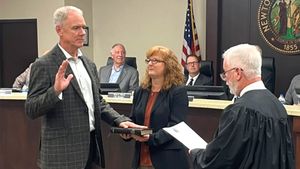Treatment GuideJust DiagnosedSex & DatingAfrican AmericanStigmaAsk the HIV DocPrEP En EspañolNewsVoicesPrint IssueVideoOut 100
CONTACTCAREER OPPORTUNITIESADVERTISE WITH USPRIVACY POLICYPRIVACY PREFERENCESTERMS OF USELEGAL NOTICE
© 2025 Pride Publishing Inc.
All Rights reserved
All Rights reserved
Scroll To Top
By continuing to use our site, you agree to our Private Policy and Terms of Use.
As much as you might not want to admit it, your friends are probably more popular than you are. But ultimately, knowing this fact could help you because the 'friendship paradox' could help predict the spread of infectious disease. Two researchers--Nicholas Christakis, a professor of medicine, medical sociology, and sociology at Harvard University, and James Fowler, a professor of medical genetics and political science at the University of California, San Diego--have used the paradox to study the 2009 flu epidemic among 744 students. The researchers say their findings, which were reported online in September in the journal PLoS One, point to a novel method for early detection of contagious outbreaks. Analyzing a social network and monitoring the health of its central members is an ideal way to predict an outbreak. But such detailed information simply doesn't exist for most social groups, and producing it is time-consuming and expensive. But the "friendship paradox," first described by a sociologist in 1991, potentially offers an easy way around this. Simply put, the paradox states that, statistically, the friends of any given individual are likely more popular than the individual herself. Take a random group of people, ask each of them to name one friend, and on average the named friends will rank higher in the social web than the ones who named them. If this is hard to fathom, imagine a large cocktail party with a host holding court in the center while, at the fringes, a few loners lean against the walls staring at their drinks. Randomly ask the partygoers to each name a friend, and the results will undoubtedly weigh heavily in the direction of the well-connected host. Few people will name a recluse. Just as they come across gossip, trends, and good ideas sooner, the people at the center of a social network are exposed to diseases earlier than those at the margins. As the 2009 influenza season approached, Christakis and Fowler, who are authors of the book Connected: The Surprising Power of Our Social Networks and How They Shape Our Lives, decided to put these basic features of a social network to work. So they contacted 319 Harvard undergraduates who in turn named a total of 425 friends. Monitoring the two groups--their original contacts and the named friends--both through self-reporting and data from Harvard University's health services department, the researchers found that, on average, the friends group manifested the flu roughly two weeks prior to the random group using one method of detection and a full 46 days prior to the epidemic peak using another method. 'We think this may have significant implications for public health,' Christakis says. 'Public health officials often track epidemics by following random samples of people or monitoring people after they get sick. But that approach only provides a snapshot of what's currently happening. By simply asking members of the random group to name friends and then tracking and comparing both groups, we can predict epidemics before they strike the population at large. This would allow an earlier, more vigorous, and more effective response.' 'If you want a crystal ball for finding out which parts of the country are going to get the flu first,' Fowler adds, 'then this may be the most effective method we have now. Currently used methods are based on statistics that lag the real world--or at best are contemporaneous with it. We show a way you can get ahead of an epidemic of flu--or potentially anything else that spreads in networks.' Indeed, the researchers say that the same method could be used even more widely to anticipate epidemics of behaviors like drug use or even the diffusion of ideas or fashions. John Glasser, a mathematical epidemiologist at the U.S. Centers for Disease Control and Prevention in Atlanta (who was not involved in this research), says, 'Christakis's and Fowler's provocative study should cause infectious disease epidemiologists and public health practitioners alike to consider the social contexts within which pathogens are transmitted. This study may be unique in demonstrating that social position affects one's risk of acquiring disease. Consequently, epidemiologists and social scientists are modeling networks to evaluate novel disease surveillance and infection control strategies.'
From our Sponsors
Most Popular
Lexi Love comes out as HIV+ after Trump deletes federal resources
January 23 2025 11:23 AM
Ricky Martin delivers showstopping performance for 2024 World AIDS Day
December 05 2024 12:08 PM
Trump's orders prompt CDC to erase HIV resources
January 31 2025 5:29 PM
California confirms first case of even more deadly mpox strain
November 18 2024 3:02 PM
This long-term HIV survivor says testosterone therapy helped save his life.
December 16 2024 8:00 PM
Plus: Featured Video
Latest Stories
Two right-wing Supreme Court justices signal they may uphold access to PrEP and more
April 21 2025 4:10 PM
Discover the power of Wellness in your life
March 26 2025 12:41 PM
BREAKING NEWS: Trump admin moves to end federal HIV prevention programs
March 18 2025 6:10 PM
Celebrating Black History Month with our annual African American issue
February 01 2025 3:28 PM
AIDS Memorial Quilt displayed at White House for the first time
December 02 2024 1:21 PM
Climate change is disrupting access to HIV treatment
November 25 2024 11:05 AM
Check out our 2024 year-end issue!
October 28 2024 2:08 PM
500,000 Children at Risk: PEPFAR Funding Crisis
April 08 2025 3:51 PM
Broadway's best raise over $1 million for LGBTQ+ and HIV causes
April 03 2025 7:15 PM
Season 4 of The Switch on resilience & radical self-love returns this spring
March 26 2025 12:20 PM
Gerald Garth is keeping people of color happy and healthy through trying times
March 11 2025 3:38 PM
Tyler TerMeer vows to continue to fight for health care for all
January 28 2025 3:00 PM
A camp for HIV-positive kids is for sale. Here's why its founder is celebrating
January 02 2025 12:21 PM
Decades of progress, uniting to fight HIV/AIDS
December 01 2024 12:30 PM
The Talk Season 5 premieres this spring with HIV guidance for the newly diagnosed
March 26 2025 1:00 PM
Jess King is here to help you live your happiest, healthiest life yet
March 24 2025 4:35 PM
Plus nominated for 2025 GLAAD Media Award
January 22 2025 12:42 PM
'RuPaul's Drag Race' star Trinity K Bonet quietly comes out trans
December 15 2024 6:27 PM
Hollywood must do better on HIV representation
December 01 2024 9:00 AM
Post-election blues? Some advice from mental health experts
November 08 2024 12:36 PM












































































